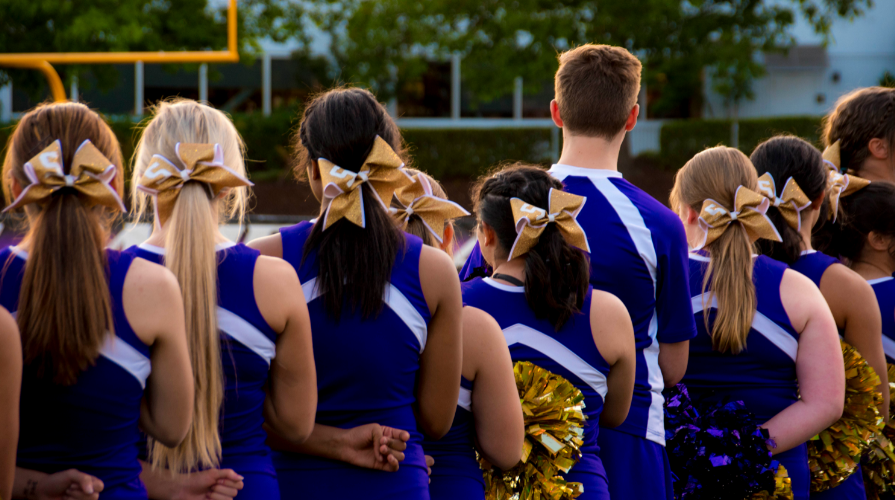Using Outside Volunteers as Team Sponsors
Districts have recently inquired about the possibility of bringing in nonemployee volunteers to be the cheer or drill team sponsor.
While nothing definitively prohibits nonemployee volunteers for these roles, any pros are likely outweighed by the cons.
The University Interscholastic League (UIL) Contest Rules include specific requirements for Employment of Coaches and provide guidance in an official interpretation, but they don’t address employment or certification of cheer or drill sponsors or other sponsors (e.g., National Honor Society, Future Farmers of America) — those decisions are left with the local school district. Although this opens the door to the volunteer possibility, there are several issues to keep in mind.
Teaching Elective Courses and Certification
Certification requirements for coaches depend on the individual’s assignment. An employee is not required to be certified to supervise a sport, academic team, or other extracurricular activity. However, if students receive physical education (PE) credit for athletics or the employee is going to teach an associated elective class for credit, the individual must be certified through the State Board for Educator Certification (SBEC). An employee must have a valid certificate that matches the grade level of the assignment to teach the elective courses of athletics, cheerleading, drill team, and marching band.
Fair Labor Standards Act (FLSA) Considerations
Section 3(e)(4)(A) of the FLSA and 29 CFR § 553.101 and § 553.103 indicate that individuals are volunteers, not employees of a public agency, when they meet the following criteria:
- Perform hours of service for civic, charitable, or humanitarian reasons without promise, expectation, or receipt of compensation for the services rendered
- Offer their services freely and without coercion, direct or implied, from the employer
- Are not otherwise employed by the same public agency to perform the same services as those for which they propose to volunteer. In other words, individuals can qualify as volunteers if they either volunteer for different agencies or perform different services than they are employed to perform.
The TASB Legal Services eSource article The Basics on Volunteers and Volunteering in Your District offers further guidance. An individual who is not otherwise employed by the district may volunteer services for the district and need not be paid minimum wage or overtime. The key is the person must not be an employee of the district. Under the FLSA, an individual is an employee, and not a volunteer, if the individual expects or receives compensation for the services rendered. However, an individual may be paid expenses, reasonable benefits, a nominal fee, or any combination thereof, for their service without losing their status as a volunteer (29 C.F.R. § 553.106(a)). A fee is not “nominal” if it is a substitute for compensation or tied to productivity (29 C.F.R. § 553.106(e)). See also Wage & Hour Op. FLSA 2004-6 (July 14, 2004).
Required Training
There are several required trainings and certifications for cheer sponsors that are not required for drill team sponsors. Cheer coaches must have cardiopulmonary resuscitation (CPR) and first aid training, as well as complete the UIL Safety/Risk Minimization for Cheerleading Course. They also need to complete automated external defibrillator (AED) training/certification. It’s worth noting that things could get complicated if a district were to pay for a volunteer’s training; it probably would be easier to pass the cost and additional time requirement on to the volunteer.
Background Checks and Agreements
Districts are required to conduct a name-based state criminal history review on certain volunteers, including those working as drill team or cheer sponsors. As a general rule, a district is required to review the criminal history of any volunteer or person who has indicated in writing the intention to serve as a volunteer unless they meet certain exceptions (e.g., parent, guardian, grandparent of a student; accompanied by a district employee or single-event volunteer). Unless an exception applies, the individual may not begin performing any volunteer duties until the district obtains and reviews the person’s criminal history.
Additionally, while not required, it is strongly recommended that the district and cheer or drill team volunteer sign a written agreement specifying that the role is unpaid (excluding any paid expenses, reasonable benefits, or nominal fees), and describing the functions of the role and general expectations. Volunteers should also agree to comply with district regulations regarding confidentiality and privacy. A sample volunteer confidentiality form is available in the HR Services Resource Library (member login required).
Making a Decision
Like most employers today, education entities have had to get creative when it comes filling vacancies. While support exists for the argument that a district could bring in volunteers to be cheer and drill team sponsors, careful consideration of all associated factors may lead a district to opt otherwise. Other issues to consider include liability for any injuries the individual experiences while volunteering and liability for transporting students.

Keith McLemore
Keith McLemore joined HR Services in 2015 and assists districts with compensation planning and development. He has 17 years of experience traveling the state supporting public education employees.
McLemore received a bachelor’s degree from Southwestern University and a master’s degree from Texas Tech University, both with a focus on research analysis and design. He is a SHRM-CP.
HR Services

Subscribe to HRX
Stay up to date with all the latest HR news and trends by joining the HRX mailing list!

